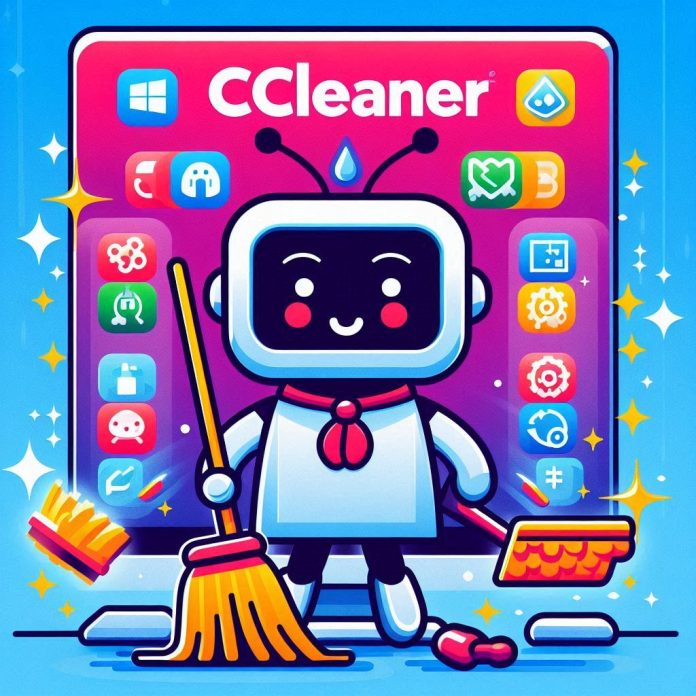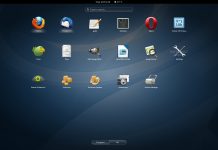In the world of PC maintenance, few tools stand out as prominently as CCleaner. As an experienced copywriter, I’ve often explored various software options to optimize my workflow and maintain a clutter-free digital environment. Today, I’m diving into a detailed review of CCleaner for Windows, examining its features, usability, advantages, and potential drawbacks.
What is CCleaner?
CCleaner is a utility software developed by Piriform, designed to clean up unnecessary files from your computer, thereby freeing up space and optimizing performance. The software is well-known for its user-friendly interface and efficient cleaning capabilities. But does it live up to the hype? Let’s find out.
Key Features of CCleaner
- System Cleaning
CCleaner scans for and removes temporary files, cache, and other unnecessary data from your system. This feature not only helps in reclaiming storage space but also enhances system performance. - Registry Cleaner
The registry cleaner scans for invalid or obsolete entries in the Windows registry. By cleaning these, CCleaner aims to improve system stability and speed. - Browser Cleaner
CCleaner effectively cleans browsing data, including cookies, history, and cache from popular browsers like Chrome, Firefox, and Edge. This helps in maintaining privacy and freeing up space. - Software Uninstaller
The built-in uninstaller allows users to remove unwanted applications directly from CCleaner, simplifying the process. - Startup Manager
With the startup manager, I can control which programs launch at startup, potentially speeding up boot times and system responsiveness. - Scheduled Cleaning
CCleaner offers the option to schedule cleanups, ensuring that my system remains optimized without requiring manual intervention. - Health Check
This feature provides an overview of my system’s health and suggests actions to improve performance, which is particularly useful for those of us who may not be tech-savvy.
User Experience
Upon downloading and installing CCleaner, I was greeted with a clean and intuitive interface. The layout is straightforward, making it easy to navigate through the various features. Whether I wanted to perform a quick clean or delve into the advanced options, everything was accessible within a few clicks.
Performance and Speed
I ran CCleaner on my Windows machine and was impressed by its speed. The scanning process was quick, and the results were displayed in a clear format. After selecting the files I wanted to clean, the process completed in a matter of minutes. I noticed a significant improvement in system responsiveness post-cleanup, which is always a bonus.
Customization Options
One of the standout features of CCleaner is its customization options. I appreciated the ability to select specific items to clean, ensuring that I didn’t lose any important data inadvertently. This level of control is particularly beneficial for those who may be cautious about automated cleaning tools.
Advantages of Using CCleaner
- Easy to Use: The user-friendly interface makes CCleaner accessible to users of all experience levels.
- Effective Cleaning: It efficiently clears out unnecessary files, contributing to improved system performance.
- Regular Updates: CCleaner is frequently updated, ensuring compatibility with the latest Windows updates and features.
- Free and Paid Versions: While the free version offers substantial functionality, the paid version presents additional features, such as real-time monitoring and automatic updates.
Potential Drawbacks
While CCleaner has many advantages, it’s essential to consider potential drawbacks:
- Aggressive Registry Cleaning: Some users have reported issues with the registry cleaner, claiming it occasionally removes essential entries, leading to system instability.
- Privacy Concerns: In recent years, CCleaner faced scrutiny over data privacy practices, which has raised concerns among some users.
- Limited Features in Free Version: While the free version is effective, many advanced features are locked behind the paid version, which may not be ideal for all users.
Is CCleaner Right for You?
As an experienced copywriter, I appreciate tools that streamline my workflow and optimize my system. CCleaner has proven to be a valuable asset in maintaining a clutter-free environment, allowing me to focus on my writing without the distraction of a sluggish machine.
However, it’s crucial to weigh the pros and cons based on individual needs. If you are someone who values a clean and efficient system and is willing to invest in the paid version for additional features, CCleaner could be an excellent choice.
Alternatives to CCleaner
If you’re exploring options beyond CCleaner, there are several alternatives worth considering:
- BleachBit: A free, open-source cleaning tool that offers similar functionalities without the potential privacy concerns.
- Glary Utilities: This utility offers a comprehensive suite of tools for system optimization, including disk cleanup, registry cleaning, and performance monitoring.
- Wise Disk Cleaner: Another free option that focuses primarily on disk cleanup, providing a straightforward approach to system maintenance.
Conclusion
In my experience, CCleaner for Windows remains a robust tool for system optimization, providing an effective solution for those looking to enhance their computer’s performance. The combination of ease of use, effective cleaning capabilities, and the option for advanced features makes it a compelling choice.
As with any software, it’s essential to use it judiciously and stay informed about updates and best practices. I recommend regularly reviewing your cleaning preferences and ensuring that you’re only removing files that you genuinely do not need.
<iframe width="560" height="315" src="https://www.youtube.com/embed/fpZLUYALRhU?si=b-ecEFp1BBukmfJq" title="YouTube video player" frameborder="0" allow="accelerometer; autoplay; clipboard-write; encrypted-media; gyroscope; picture-in-picture; web-share" referrerpolicy="strict-origin-when-cross-origin" allowfullscreen></iframe>




.jpg?w=100&resize=100,70&ssl=1)
